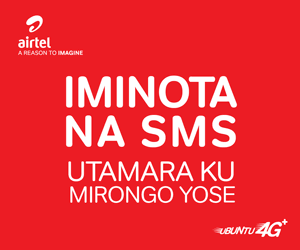Whether you want it or not, the world will judge you in one way or another, no matter you hate or like it. For some reason, this is what all employers do. They judge you. They evaluate you and react accordingly. How you conduct yourself therefore, is a springboard to success or failure in life thereafter. Whether you are running a business or a public office, just starting a business or vying for a promotion, always use these simple guidelines all the time to position yourself.
The guidelines are randomly presented, and not exhausted. The number is limitless, but these are common and basic.
Express gratitude: A ‘thank you’ note goes a long way. If possible, a handwritten note is perfect. If you prefer a paperless option, make sure your message is concise, thoughtful, and free of misspelled words. The result will be priceless.
Turn off your gadgets in meetings: Don’t make the CEO or anyone chairing a meeting remind you to turn your phones face down, close your laptops, and focus only on the meeting. Having the discipline to step away from distractions is refreshing. Of course, this only works if everyone adheres to it. It’s difficult to make that happen, but when everyone is unplugged and focused, meetings are much more productive.
Appearance: An individual who wishes to be given due respect at the work place must dress appropriately for his environment. If his office culture is to dress in formal business attire, he must wear a jacket and tie at all times. On the other hand, if his industry dictates a t-shirt and jeans, he would look pretty silly dressed in a tuxedo. By wearing appropriate attire for his line of business, he ensures that everyone he comes in contact with will take him seriously.
Arrive on time for meetings (face to face or virtual): If you’re the meeting host, on time means at least five minutes earlier. If you’re the guest, on time means on time. It’s crazy how often people on both sides of the invitation are late and say nothing about it. If you get held up and know you’re going to be delayed, a quick email or text message can keep the person on the other end from feeling stood up… example… “I am sorry I might delay for five minutes, there is a little traffic along the highway. Perhaps the easiest way to exhibit professionalism is to consistently be punctual. On a daily basis, one must arrive at the office on time, ready to work. This action alone speaks volumes to both managers and peers, demonstrating the individual’s seriousness regarding work. She/he must also be prompt when meeting with others: supervisors, clients and prospective employers. Excessive tardiness means that the non-offending parties must wait, often at the expense of their own promptness to their next appointment. A professional who is regularly late for appointments gives the impression that he/she does not respect the value of other people’s time.
When it comes to business meals, mind your manners: this is really a sensitive matter. I mean, you don’t want to be Rwanda’s Temarigwe, right? But also, don’t be exploitative or be less courteous. This reminds me of host who invited a client to lunch, and the first red flag went up when she brought a co-worker that had not been invited. The client talked about herself the entire time while the co-worker sat in obvious misery. When the client’s plate arrived first, she hovered over her plate and dove in with such intensity; finishing up a month-long juice fast. Mouth packed with food, she kept on talking while the rest lost their appetites. Several months later, the client asked for a referral. I’ll let you guess if she got it.
No nail trimming at work: This wouldn’t be mentioned if I had not witnessed it too many times. This also goes for toes. I’ve seen that, too, and hardly survived it. Just because most of us work in open work environments doesn’t mean it’s a green light to do things better done in privacy – say your own home/bathroom. When should trimming nails at work happen? It shouldn’t happen . While it should be obvious, this also goes for large group meetings as well. Now, I’m not perfect by any stretch of the imagination. Once, one of my nail-trimming co-workers busted me doing my eyebrows at my desk, and she never let me live it down. I deserved it! The same rule applies for flossing at your desk. I did not mention this disgusting toothpick I see in one’s mouth for hours after a meal.
Don’t send any email or instant messages: As someone who has sent a gossipy email intended for a co-worker directly to the person being gossiped about. Ouch! Worse, an email got forwarded around while she wanted to crawl under her desk and die. Watch what you’re saying on instant messaging systems, too. Likely, there are chat logs of what you’re chatting about that are archived somewhere, so if you’re talking about your lady parts or who didn’t wash their hands after going to the bathroom, somebody in IT is probably reading it. No wonder those IT guys say so little and then go to lunch in huge groups — they have a lot of dirt on the rest of us.
Email Formatting: When communicating with colleagues and customers via email, a professional should use the same greetings and salutations she would use in standard correspondence. “Dear,” “sincerely,” “please” and “thank you” go a long way in ingratiating herself in the receiver’s good graces. Additionally, she/he must never type emails in all capital letters, as this is akin to yelling as someone.
Don’t dominate the “Questions” segment in meetings: How many questions should you ask? Frankly, I think one question per big meeting is usually enough; three is the maximum. For smaller meetings, just consider how much air time is available, and try not to dominate. Also, consider if the question has the word “I” in it. Who will benefit from the answer? If it’s just about you, save it and track down the right person after the meeting. There are all kinds of ways to be heard — if you just need to hear the sound of your own voice, start talking to yourself at home while you’re trimming your nails.
Decorum: An individual’s attitude and deportment exhibit just as must about his seriousness as his wardrobe does. Excessive use of slang, profanity and other offensive language is an immediate sign of unprofessionalism. Additionally, the spreading of gossip and communication of private or confidential information does not win him any points with colleagues and customers.
Communication Appropriateness: A professional must be mindful of the subject matter of all spoken and written conversations. Telling crude jokes and sending profanity laced correspondence is not only offensive to some, but is often against corporate policies. A reciter of inappropriate stories may be accused by human resources of creating a hostile work environment. Likewise, a sender may think an email is amusing, but it may get a receiver in hot water if it contradicts his employer’s electronic communications regulations.
Don’t interrupt: We’ve become a nation of “over-talkers,” so eager to offer our own opinions or press our point that we often interrupt others mid-sentence. It can be tongue-bitingly difficult to force ourselves not to interject, especially when the discussion is heated. Don’t. It’s rude and shows disrespect for the opinions of others. Remember, be assertive, not aggressive.
Avoid the “Big Two.”: We have blurred many of the personal and professional lines, but politics and religion are still off-limits. These topics are highly charged minefields for a professional atmosphere. Leave them at the office door.
The views above are not entirely mine, and much as the list cannot be exhausted, however, they are applicable the world over.
Phiona Ingabire’s Professional profile can be found HERE





